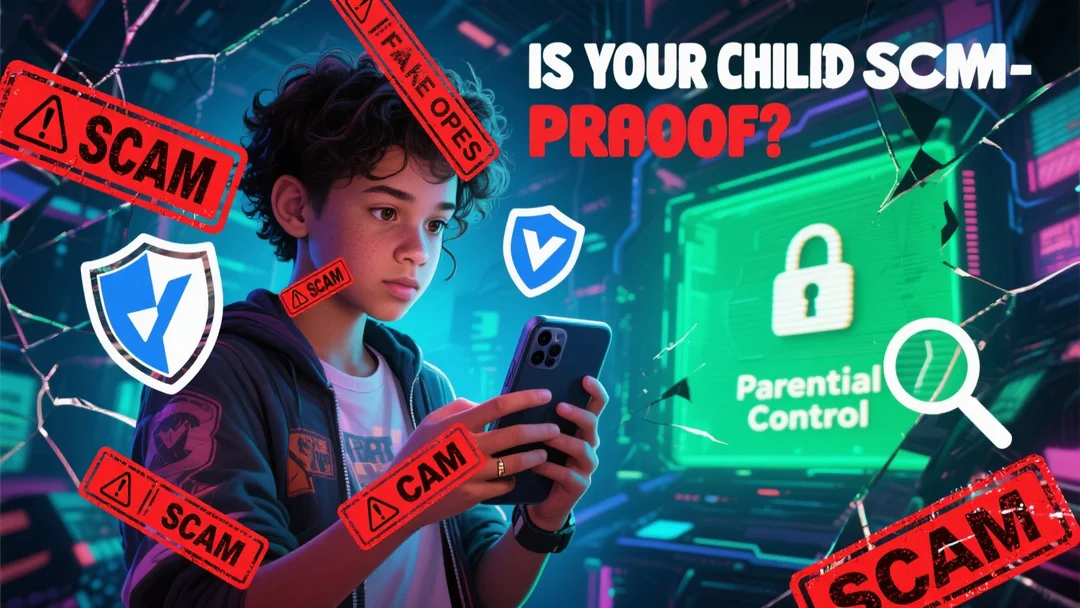Scammers are targeting kids and teens more than ever. From fake game currency to phishing emails, young internet users risk losing money, personal data, and even their identities. Here’s how to teach them to stay safe.
Why Are Kids at Risk?
- Teens report scams 156% more often than before (FBI, 2021).
- They’re too trusting: Many believe “free offers” or “easy money” schemes.
- Limited experience: Kids don’t recognize red flags like adults do.
Common Scams Targeting Kids
1. Fake Money Offers
- ”Free Fortnite V-Bucks!” → Steals game accounts.
- ”You won a prize!” → Asks for bank details.
- Peer-to-peer scams (Venmo, Zelle): “Send 10,get100 back!” (Spoiler: You lose both.)
How to spot it: If it sounds too good to be true, it is.
2. Phishing Emails/Texts
- Fake alerts: “Your Netflix account is locked!”
- Urgent messages: “Reply now or lose access!”
- Bad grammar: Scammers often misspell words.
Teach kids: Never click links. Check sender addresses.
3. Romance Scams
- Fake dating apps trick teens into sharing photos or sending money.
- Red flag: Someone they’ve never met asks for gifts or cash.
4. Malware Downloads
- ”Download this cool hack!” → Installs spyware.
- ”Your device is infected!” → Fake virus warnings.
Fix: Use antivirus software (like McAfee) and avoid shady downloads.
How to Protect Your Child
1. Talk About Scams Early
- Role-play: “What would you do if someone offered free Robux?”
- Use real examples: Show them FBI’s Safe Online Surfing games.
2. Set Tech Rules
✔ Never share passwords (even with friends).
✔ Only chat with people they know.
✔ Use a VPN on public Wi-Fi.
3. Monitor (Without Snooping)
- Check privacy settings on social media.
- Enable parental controls for younger kids.
4. Teach the “STOP” Rule
- Strange offer? Think twice.
- Offer too good? Pass.
What If They’re Scammed?
- Freeze accounts (bank, social media).
- Report it to FTC.gov or the platform.
- Talk about it—no shame, just learning.
Final Tip
Kids won’t avoid scams they don’t know exist. Start the conversation today!
Need help? Try:
- Google’s Be Internet Awesome (free games).
- McAfee Family Protection (monitoring tools).








